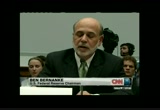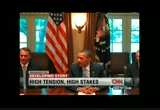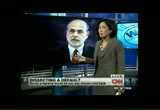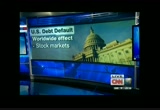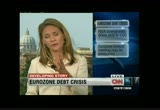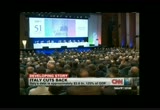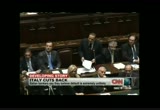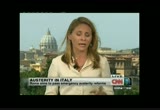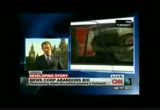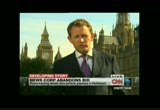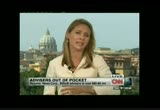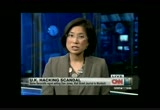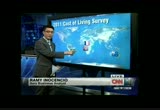tv World Business Today CNN July 14, 2011 1:00am-2:00am PDT
1:00 am
>> a june bride. >> well, sad that didn't work out. hugh extraordinarily was dumped almost at the aisle. he now breaks his silence on his heartbreak and new loves. exclusive interview tomorrow night with hugh hefner. i'm zain vergee at cnn in lond london, here are the headlines this hour. the minister is asking for the public's help with clues concerning the bombing in mumbai. there's been no claim of responsibility. media baron rupert murdoch has abandoned his attempt to take over bskyb. it was dropped after all the
1:01 am
parties in parliament called on murdoch to dump his plans to pursue it. at least four members of the u.s. congress want the government to investigate whether u.s. citizens were victims of phone hacking by murdoch's media outlets. international journalists were attempted to hack into the phone messages of 9/11 victims. > ruling party officials say mr. salih will go back after he's 4 surgery. those are the headlines. those are the headlines in cnn in london. "world business today" starts now. very good morning to you
1:02 am
from cnn rome. >> and good afternoon from cnn hong kong. i'm pauline chu and this is "world business today." these are the top stories on this thursday, july 14th. running on empty and running out of time on both sides of the atlantic. there's a tense stalemate in washington as lawmakers fail yet again to head off the looming debt default. meanwhile, italy races to push through austerity measures and restore confidence in the country's economy. plus, rupert murdoch is in damage control mode as the crisis at newscorp continues after he ditches his bid for bskyb. but first, a tide of debt trouble seems to be rising on both sides of the atlantic with lawmakers in a number of countries, frantically trying to cope with their country's financial woes. in the united states, as we speak, talks to raise the
1:03 am
country's borrowing limit have once again, it seems, hit the buffers. and moody's says as a result of that it's putting the united states on sovereign's on credit watch negative for potential downgrade. here in europe, italy is grabbing the headlines. it's planning a $7 billion bond sale on thursday, this as lawmakers scramble frantically to pass through a punishing set of measures. the upper house of the italian parliament debatining at the moment. we expect the finance minister to take center stage. all of this is adding up to be a great time for investors in gold which has hit a new record high as many people are looking for a safe place, a traditional safe haven to put their money in. and nina, this pressure is being felt all across the globe as debt default meet innings
1:04 am
washington run into a fifth day now. we've seen losses across much of asia today. european markets are also down and the u.s. futures aren't looking too perky at the moment. all of that has left gold hovering near a record high as you mentioned, nina, over $1,500 an ounce. >> we should talk about how the european stock markets are reacting, pauline. european investors not terribly convinced this crisis over, especially when talking about italy, which is europe's fourth largest economy. taking a look at the markets. the cac 40 in france, the ftse 100 down by quite a bit at the moment. and the markets in milan, well, are not moving that much but this is a day when the italian parliament will be trying to push through these painful austerity measures. the country has gone to the bond market for its thursday weekly sale, pauline. >> we'll see what the yield
1:05 am
brings on the bond market there. and it was a similar story here in asia, nenia, where most of the asian markets had a down day on thursday. let's take a look at the numbers the nikkei ended down by more than 0.25%, the hang seng was flat and the shanghai composite up by 0.5%. the main concern was over moody's warning that it could downgrade its rating on u.s. debt has the political impasse in washington continues over raising the debt ceiling. that has dragged on and the deadline for doing so looms, august 2nd deadline. also financial stocks even exporters have felt most of the pressure, especially exporters, in japan where the yen is still very strong, it's broken past that 80 milestone mark, that sort of yardstick mark. it's too strong for the exporters. right now, a dollar yen, the yen is trading at 79 yen to the dollar.
1:06 am
so a bit too strong for exporters. nina? >> pauline, let's also take a look at how the stock markets performed on wall street just yesterday. stocks there on wednesday bounced back from three days worth of losses despite the ongoing debacle surrounding the u.s. debt ceiling. moody's comments about it. one of the reasons we saw gains is particularly because we had encouraging growth numbers coming out of china and more importantly, we had soothing words from the federal reserve chairman ben bernanke himself. at the close of trade, a gain between 0.3 and 0.5%. let's go back to what bernanke was saying, in his semiannual testimony, he said once again, the soft spot that the economy has hit will be short lived. here's what's interesting about what he had to say. after spending months denying to people there would be stimulus measures, he gave this hint.
1:07 am
>> the federal reserve remains prepared to respond should economic developments indicate that an adjustment would be appropriate. >> now, that's quite a different tone from the message we got two weeks ago when the fed ended its last round of stimulus of qe2. looking ahead to the start of trade in the u.s., right now in premarket trade, the major markets are pointing to a higher open. this is quite different from just a little while ago where all the futures were pointing to a lower open. perhaps there is some confidence that things will get done in italy and confidence perhaps that we may see some results in the fifth day of negotiations down in washington. high tension and high stakes in the white house, talks to diffuse the debt crisis ended wednesday night with both sides offering conflicting reports of the proceedings. this was the scene as congressional lawmakers met. one thing we do know is that the
1:08 am
fourth day of discussions ended in stalemate and that a fifth day of talks is planned for today. now, this man, house majority leader eric cantor says that when he proposed a short-term deal to raise the debt creeling which is something the president opposes, mr. obama became agitated and said he had sat there long enough. now, according to cantor, he claims that the president cut him off by saying i'll see you tomorrow and then walked out. well, a democratic source tells it a little bit differently, saying that the president challenged mr. cantor for, quote, talking out of both sides of his mouth. now, this is why tensions are high. nearly $14.3 trillion of debt, that limit will be reached on august 2nd if congress refuses to raise the debt ceiling. that would have ripple effects around the world. if that doesn't happen, the u.s. will officially run out of money. cnn's jessica yellin is in washington. >> the president sort of told
1:09 am
the entire group that this is exactly what americans think of as washington at its worst, washington catering to the base, catering to politics, putting their own political future ahead of doing important things and taking on the big issues. and that he called on the group to take on this challenge and then called the meeting to an end. no matter how you read that, it's clearly an increase in tensions on day three of these debt negotiations. with no sign of real progress with the clock ticking. and i do have it confirmed that this president really did say, you know, with my presidency at stake, i will not yield on this issue. >> the longer the deadlock goes on, the more the world is beginning to worry. moody's put america's credit rating under review on wednesday, hinting at a possible downgrade. that follows similar action from the other two big ratings agencies, standard & poors as
1:10 am
well as another agency. ben bernanke warned that congressional lawmakers and he warned them what could happen if they run out of time. >> fairly soon after that date, there would have to be significant cuts in social security, medicare, military pay or some combination of those in order to avoid borrowing more money. if in fact, we ended up defaulting on the debt, or even if we didn't, i think it's possible that simply defaulting on our obligations to our citizens might be enough to create a downgrade in credit ratings and at higher interest rates for us which would be counterproductive, of course, since it makes the deficit worse. >> put simply, cuts would have to be made from social programs to paychecks. one estimate is half of the government's 80 million monthly payments would not be made. the effect of a default by the world's largest economy would be felt around the world as well
1:11 am
and the impact on the stock markets could prove catastrophic. furthermore, the reputation of the u.s. would be badly tarnished, even if bond investors continued to be paid, investors and the ratings agencies wouldn't take it lightly when the treasury had to delay payments elsewhere. that's the focus right now in washington. while in europe, nina, the focus on europe and trying to push the austerity package through. >> it's true. a lot of people are in denial about whether or not we'll see countries like italy default. nevertheless, europe is fighting its own crisis, debt crisis, on numerous fronts. as investors seek a safe haven for their money. the failure of some of these european leaders to so far agree on a bailout package for greece, that led fitch to downgrade to ccc, the lowest you'll see anywhere. the euro zone leaders held an
1:12 am
emergency meeting on friday. that meetings seems to have slipped and may have been put in the cards for next week. i'm in rome at the moment. the government on the other side of town, towards my right, will soon begin debating -- will be hold be a $7 billion bid auction. later on today it will be debating a 79 billion euro austerity package, crucial to this country. as the senate begins that debate, this country's own debt stands at no less than $2.6 trillion. that really gives you an idea of the magnitude of the kind of scale of what we're talking about here. there's a lotali alilot at stak. of course, if italy were ever to default and fail to pay its debts wouldn't just be international sophisticated investors who would be affected. it would also be the average person on the street. now, the italians say they
1:13 am
really don't want austerity but they do realize it's time to make sacrifices. rome, a city famous for the sweet life, no amount of sugar can mask the bitter pill the italians will soon have to swallow. at this cafe, one customer tells me she's worried, very worried. she doesn't think the politicians will be able to get italy out of its situation, a situation she says which is difficult for other european countries. years of easy living and fraught politics have left italy with a debt burden equal to 120% of its economy. everyone agrees, something must be done fast but it's less clear exactly where the ax will fall and when emergency reforms will make it through parliament. italy's finance minister is hoping to push the proposals
1:14 am
through on friday, a record speed in a nation famous for its endless political debates. and that's much to the delight of the business community. >> we are all working together and i think and i hope this will be enough to say to america, italy is there, the government is there, entrepreneurs are there, we want to work for zero deficit, cap public spending and go back to growth, which is absolutely very important. >> reporter: as italy's bankers converge upon rome for the annual summit, the timing couldn't be more apt with this country's debt crisis grabbing headlines far beyond its borders. the word on everybody's mind here is austerity but not default it seems do you think italy will default on its debts. >> i see zero chance. >> reporter: in unity, prime minister silvio berlusconi has
1:15 am
warned without the necessary measureses, this country will go back 20 years. for the man on the street or in the cafe rather, that would seem no bad thing. >> translator: yes, i am a bit nostalgic. >> reporter: right. as you can see there, the italians realizing that it is time, perhaps, to wake up and smell the coffee. let's take a look at the austerity measures that will be going through parliament in two stages over the next two days. today, we're going to see the government trying to get the bill through the senate which is the upper house of parliament, they have a bigger majority there. it stands more chance of getting through. then they'll be tackling the chamber, the lower house of parliament. what does the bill include? it includes caps on guilded pensions, generous ones in italy, increased contributions for health care. health care has traditionally been free for italians.
1:16 am
duties on securities and investments. the italians are known for being big savers. privatizations of state entities such as, for instance, the post office and the train network. pauline, we're talking about cuts here. the total package was supposed to be 52 billion just a couple of days ago. now it has risen to in excess of 79 billion euros. we'll see what happens later on today in parliament. pauline? >> yes. i've already read, nina, politicians may take a pay cut by as much as 50%. 10 we'll see what happens. this is certainly a critical time for a country with sluggish growth but high debt. coming up next on "world business today," first he lost a up in and then his bid for bskyb turned to custard, turned sour. now to top it all off, rupert murdoch is under scrutiny in the u.s. we'll bring you more details on that in just a moment. active naturals wheat formulas target and help repair damage in just 3 washes.
1:17 am
1:20 am
from cnn hong kong and rome, this is "world business today." welcome back. >> newscorp's high-flying attempt to take control of bskyb it seems has come firmly crashing back down to earth. rupert murdoch withdrew the bid for bskyb on wednesday. that was amid the scandal at newscorp international. it must have been a tough one for him. >> reporter: oh, yeah, completely. we were all told he was desperate to get his hands on the remaining shares, 60% of sky that he didn't own. and it will be a bitter climbdown for him. one he was facing the reality
1:21 am
that in the political climate that was developing where all the main parties were opposed to that takeover going ahead. it was just kind of unrealistic for them to pursue that right now. not saying perhaps they don't come back and have another go at it in six month's time. in terms of what will happen today, there's momentous developments today as well. right now is the deadline, we're told, fora bekaa brooks, the embattle embattled chief international to respond before a committee of politicians on wednesday. we're told 9:20 is the latest she could respond. after that who knows what will happen after that. theoretically she could be forced to attend by the sergeant at arms' office which is sort of an old ancient office here. they've never, in recent memory, had to frog march someone into
1:22 am
committee but that's a possible prospect if she decides she won't turn up or answer the invitation. they cant force rupert and james murdoch to turn up because they're not british but rebecca brooks they can. >> dan rivers joining us live from london. many thanks. in the u.s., members of congress are calling for a home grown investigation into hacking and bribery allegations against newscorp. u.s. senator jay rock feller is among those who's asking the justice department to look into reports that newscorp executives allegedly bribed police officers. if americans were involved, rockefeller who you see there, says the company may have violated federal anti-bribery laws. members of congress say they're angry of reports that members may have hacked into the phones of 9/11 victims and their families. newscorp's television operations
1:23 am
earn $15 billion a year for the company. that's largely thanks to the success of the fox network and hit shows like "american idol," "24" and "the simpsons." newscorp also owns fox sports network and several television stations from new york to los angeles. you can see a map of all the local tv stations fox owns, they're called fox o & os in the u.s. each one of these antennas represents a station under murdoch's control. newscorp also owns and operates fox news, fox business network and other cable networks, including the international geographic channel and fx. let's take a look at the film division that murdoch owns. it's also highly lucrative, bringing in more than $7 billion a year. and this is largely thanks to the success of popular 20th century fox films such as
1:24 am
"avatar," as well as the "x-men" franchise. they have titles like "the wall street journal" and "the new york post." and newscorp also owns the u.s. publisher harper collins with such famous authors as jrr tolkien and c.r. lewis under its belt. nina. >> knows are formidable names to build up over a lifetime of just one person. news corporation and bskyb are feeling the fallout of all of this and this collapsed takeover bid to be precise. banks that advised these two companies during the takeover discussions could stand to lose between $80 million and $90 million. that's the amount they would have received once the deal between news corporation bskyb had been completed. they have little chance to make
1:25 am
that back soon. investors on the other hand did seem to welcome the news, the news that news corporation was going to be walking away from this bskyb deal. the common stock closed up in excess of 3% on the stock exchange in sydney just a few hours ago when it last traded. that in turn follows a rise of 2% on the nasdaq wednesday with newscorp shares listed there. it closed at $16.36. strong reaction from investors, perhaps voting in the other direction to rupert murdoch's suspected own ambitions because, of course, as dan rivers was telling us, bskyb is a lucrative company and he did want more of the earnings from that company. and also, nina, there's more to this story. there's a footnote to this whole sordid saga. members of the family that sold
1:26 am
dow jones and "wall street journal" to murdoch said she wished they hadn't. christopher bancroft said if he had known of the phone hacking before the sale he would have pushed harder against it. more developments in this saga of murdoch and newscorp, nina. i'm sure we'll hear more in the next couple of days. >> we will indeed. pauline, we'll be taking a break. within we come back we'll have a look at the latest developments in the technology world, including the most requested movie title at netflix right now, it is called "days of rage." more of that after the break.
1:29 am
welcome back. you're watching "world business today" from cnn rome. let's bring you up to speed on the big stories out of the tech secretarier this thursday. is the personal computer going the way of the videotape recorder? pc shipments in the u.s. slumped 5.6% in the second quarter, compared to a year ago. they gained only 2.3% around the world. which is about two-thirds less than forecast. analysts point to one formidable new competitor and that's the tablet. speaking of tablets, "the wall street journal" reports that powerhouse online retailer amazon is planning a tablet computer for release in october to compete with apple's ipad. the paper says amazon hopes
1:30 am
customers will use its tablet to buy and rent digital content from its website. and customers of the u.s. video service netflix are howling mad over the company's recent decision to sharply raise some prices. thousands of complaints have flooded the netflix facebook page and thousands more have sounded off on twitter. wall street liked the move. netflix's shares hit an all-time high on wednesday. nina? >> you're up to date with the technology headlines there, thanks to pauline. we'll be back as "world business today" continues from cnn rome and hong kong after this short break.
1:34 am
welcome back. you're watching "world business today" live on cnn. from rome and hong kong, i'm pauline chu with nina dos santos. welcome back to "world business today." on this thursday in italy, italy is struggling to get its massive debt under control. italian senators are expected to approve an austerity plan that could be worth more than $70 billion. italy is also auctioning off billions of dollars in bonds. no one thinks there's a chance italy will default on its debt but the bank of italy's governor says the long-term solution to the country's indebtedness is dramatic financial reform. >> i think there is no credible alternative to a determined european action of the stuff
1:35 am
that leaders are discussing to credible fiscal consolidation in the various countries. and to structure reforms that could revamp growth, especially in the weakest parts of the area. >> many bankers and other business people in rome tell nina that they believe austerity is the only way forward but for many people there austerity may also mean getting used to changes and their expectations of what the government provides. nina, that includes perhaps health care won't be free after this austerity package. >> well, that's not entirely true, pauline. health care generally speaking is free in italy but the point is, a number of the italians will have to pay just a little bit towards their medical care when they go to a doctor or hospital. they'll have to pay a fee or percentage. we don't really know what's this bill. it will be presented to
1:36 am
parliament at midday rome time today. that's in about an hour or so from now. about 11:00 london time. let's have a look at how this is affecting the stock markets. we're looking at a country that has more than $2 trillion worth of debt if you include it's postal service. they are firmly fixed in the red. as you soon there. investors clearly worried about the european debt crisis. a lot of people in italy, perhaps, saying that perhaps italy may not need a bailout for instance like portugal, ireland and greece but we have this country going to the bond markets today, the yields that they'll have to sell the debt on will be pivotal to dictating investor confidence over the next two days and also whether they'll manage to get this bill through parliament, pauline. >> nina, we still see some of the concern lingering in the asia-pacific region in the
1:37 am
markets here on thursday. let's take a look at how the numbers ended up the session. the nikkei down by 0.25%, exporters struggling with the strong yen. the hang seng and the shanghai composite ended up, the hang seng flat but the composite up by more than 0.5% and the main share market in sydney down by more than 0.5%. a lot of this over concern about a possible downgrade of u.s. debt. that came out from moody's yesterday. so there was concern about that weighing on the markets today. now, the new zealand dollar is in record territory meanwhile. it jumped above the 85 u.s. cent mark on thursday, its highest level since the currency was floated in 1985. the reason? a much better than expected first quarter result. the gdp rose 0. 8%, much better
1:38 am
than the 0.3% that was predicted. you remember the earthquake in christchurch. that growth number signals that new zealand's central bank could soon raise interest rates. nina? >> let's have a look at how the u.s. stock markets are poised to open. despite all of this debacle and ongoing political fighting over whether or not they will manage to raise the u.s. debt ceiling, the u.s. markets closed high yesterday and are poised for a higher open when we get trading later on today. pauline, whether you're talking about rome, whether you're talking about new york or even hong kong where you are, the word on many investors' mind is debt and also crisis. >> yes, debt and crisis. those are the words we're hearing a lot these past couple of weeks. well, let's turn to china now which released a new round of data that helps us gauge where the chinese economy is headed
1:39 am
for the second half of this year and what this may mean for the rest of the world. we have jeanne ulrich in the studio. nice to see you. thanks so much for being with us. let's talk about china's gdp which came out yesterday. it came out for the second quarter at 9.5%. if we look at the graph from the past four quarters, what do you make of this? are the moves by beijing working for a slow gradual controlled slowdown of the economy? >> well, we are seeing a slight moderation in china's growth but by any measure we're seeing the economy growing a a robust pace still. in the first half of the year, the central government lifted the intest rates three times, they lifted the bank reserve requirement ratio six times. >> when you look at the increments, a lot of analysts are saying they were relieved that it looks like a soft
1:40 am
landing. if your opinion are the increments too small? should they be bigger or is this a good rate of less slowdown? >> i think we need to wait until the second half of the year to draw a conclusion. we think the next two quarters we may see a gentle moderation in china's overall gdp growth. importantly we need to pay attention to the composition of growth as well, where the growth is coming from, from investments or consumption or from net exports. >> is it also coming from industrial production and those numbers just came out, industrial production for the first half of the year is up 14%. are you worried that the economy is still too strong when you see numbers like that? >> industrial production is a lagging indicator. it is still showing a strong growth rate of 14%. however, if you look at the purchasing managers index, leading indicator, we're seeing that indicator pointing to a moderation. in the coming few months. i would expect in the third and fourth quarter of this year, to
1:41 am
show a gentle slowdown compared to first half of 2011. >> all right. let's take a look at inflation and the inflation numbers came out over the weekend. and we saw for june inflation, this is food inflation. we'll get to that in a moment. june inflation was up 6.4%, a three-year high. what do you expect after this first half of the year? do you expect more interest rate hikes to try to battle this inflation? >> you know, inflation at 6.4%, that clearly is the major concern for the chinese leadership as well as the investment community. food was a very important component in that cpi inflation as food accounts for one-third of cpi's basket. another reason for the cpi increase has been monetary expansion, too much bank lending, too much liquidity, third reason, wage increases. we're seeing 20%, 25% plus wage
1:42 am
increases in china. raising rates in the second half could be a possibility coupled with china's administrative control on prices, on housing, on food prices. i think starting even next several months we should begin to see inflationary pressure tapering off. >> you do think it's going to get a little bit less. let's talk about food inflation which you touched on. in june it was still in double digits at almost 14.5%. here's the interesting challenge. chinese families spend more than a third of their income on food. beijing wants to boost domestic spending but when a family is spending even more than a third of their income on food because of higher food prices, how can beijing try to boost domestic spending? that's a tough pal balancing act. >> yes, very true. you have higher food prices which affect the poorest segments of the society the most. that does cut into discretionary spending. the central government is trying their best to bring food prices
1:43 am
down. one of the most important factors, driving up food prices is pork. pork is a staple meat in china. china as a country consumes 50% of pork in the world and pork prices in june, of course, hit a record high. up 57%. >> which is incredible. what caused the price increase in pork? >> there's one reason is space effect. last year we had an oversupply of pork and food prices were actually low. so this year, the year-on-year increase showed a sharp increase at 57%. second reason is feed, soy bean, corn prices have surged in the first half of the year. as feed prices went up so did pork prices. this is the situation. why the central government needs to increase and actually modernize the supply of pork. the industry in china is fragmented. this is a very important issue. >> in fact, the chinese
1:44 am
government says they're going to increase the supply of pork. how are they going to do that, because right now, to increase the supply of pork, do they have pigs on reserve that they have -- >> they do have meat on reserve, yes, they're selling some of the reserves to help increase the supply. i think the most important thing is to really industrialize the pork sector. meaning you need to have large-scale slaughterhouses, creative pork meat processing industry. right now a lot of the pigs in china are raised in backyards. they're not very efficient. as the industry becomes more modernized we can basically count on morstead did i supply of pork for the population. >> okay. let's talk about liquidty which you touched on and talk about the banks here. it was interesting, there was a report out last week where moody's said it believed the national auditor has underestimated the amount of loans that local banks have made
1:45 am
and it believes that $540 billion in loans is actually unaccounted for. what are the implications of this? and also, i was curious, does this mean banks purposely did not report these loans to get around the cash reserve requirements? >> the chinese banking sector is absolutely huge. if you look at bank lending, on their own, that's actually a slowdown from 2009 we had 35% lending growth, now we're down to 1 %, 17%. however, you do have other channels where loans are given, for example, through the trust companies. now the central bank reports something called total social financing and that gives you a much more comprehensive picture of how much lending is growing at. in fact, that statistics shows. >> jing ulrich from jp morgan, the head of chinese equities and commodities. it's been a fascinating
1:46 am
discussion. we appreciate it. >> absolutely. thank you for having me. >> absolutely. thank you. we'll be right back here on "world business today" after this break. target and help repair damage in just 3 washes. for softer, stronger... ... hair with life. [ female announcer ] nourish plus. only from aveeno. when i got my medicare card, i realized i needed an aarp... medicare supplement insurance card, too. medicare is one of the great things about turning 65,
1:47 am
but it doesn't cover everything. in fact, it only pays up to 80% of your part b expenses. if you're already on or eligible for medicare, call now to find out how an aarp... medicare supplement insurance plan, insured by unitedhealthcare insurance company, helps cover some of the medical expenses... not paid by medicare part b. that can save you from paying up to thousands of dollars... out of your own pocket. these are the only medicare supplement insurance plans... exclusively endorsed by aarp. when you call now, you'll get this free information kit... with all you need to enroll. put their trust in aarp medicare supplement insurance. plus you'll get this free guide to understanding medicare. the prices are competitive. i can keep my own doctor. and i don't need a referral to see a specialist. call now to get a free information kit. plus you'll get this free guide to understanding medicare. and the advantages don't end there. choose from a range of medicare supplement plans... that are all competitively priced.
1:48 am
we have a plan for almost everyone, so you can find one that fits your needs and budget. with all medicare supplement plans, there are virtually no claim forms to fill out. plus you can keep your own doctor and hospital that accepts medicare. and best of all, these plans are... the only medicare supplement plans endorsed by aarp. when they told me these plans were endorsed by aarp... i had only one thing to say... sign me up. call the number on your screen now... and find out about an aarp medicare supplement insurance plan. you'll get this free information kit... and guide to understanding medicare, to help you choose the plan that's right for you. as with all medicare supplement plans, you can keep your own doctor and hospital that accepts medicare, get help paying for what medicare doesn't... and save up to thousands of dollars. call this toll-free number now.
1:49 am
welcome back. from cnn rome and cnn hong kong, you're watching "world business today." many much our viewers here in asia are ex-pats and here in hong kong one of the things they talk about is the high cost of rent. hong co hong kong is not cheap but what's the most expensive city for ex-pats to live in this year? consulting company merser is out with its 2011 annual cost of living survey. it look at 200 countries and found that cities in europe and asia were in the top ten. ramy inocencio joins me now. you say the most expensive city is also in an emerging economy. >> that would be lowanda.
1:50 am
angola has become one of the fastest growing economies in the world. that's thanks in part to its oil riches. this the picture of an oil flare, just off the coast there. it's using the oil income to fuel a post-war reconstruction boom. that's pulling in a lot of foreign workers and that, of course, is driving up housing costs. those foreigners might demand food that needs to be imported. we're talking at higher costs there. another xponsive city is the capital of chad in n'djamena. and rounding out the top three, we have to go to sao paulo,
1:51 am
brazil. one interesting theme out of this year's mercer survey, there's been a clear jump for australia. five of its major cities all vaulted higher, including sydney and melbourne. they moved up between 10 and 40 notches from last year. >> housing in australia is certainly very expensive. ramy, tell us, what's the top five most expensive cities in the world? you said lowanda is number one. >> tokyo comes in at number two. tokyo held the same ranking last year, number three as i mentioned is the capital of chad. but at number four, is moscow, russia. it's keeping its ranking from last year, expensive housing for foreign workers, played a big part in keeping moscow near the top of the league. rounding out the top five, we have to go to geneva,
1:52 am
1:54 am
1:55 am
euro millions is a lottery played across western europe. it week, the jackpot was worth the best part of $258 million. and just one lucky winner landed that windfall. unsurprisingly, they're keeping a low profile but we do know they're from the uk. and get this, the winnings are not taxed. there are no capital gains on this. it's all theirs to keep. that's really good luck. with so many state assets being sold off to help pay back europe's eye watering debt, we were wondering and trying to get creative. what could you buy with all of those millions? $9 million could buy you a private 1,000 acre island in greece. you'd be helping greece pay back some of the $400 billion that it owes. now, china has leased the container terminals at greece's biggest port and at the rate they paid you could lease one for one year at $142 million.
1:56 am
now, if you wanted to buy, say, a spanish airport operator, a 1% stake would set you back around $230 million. that's if you want to own a piece of an airport. since we're on the subject, how about investing in a lottery itself? spain is carving off 30% of its stake of it's el gordo lotto, a stake would set you back $281 million. it looks like the italian lawmakers in rome, trying to pass the austerity budget would love to see some of this money as well, too. >> yes, they're going to be privatizing a number of things, pauline, including the postal offices and postal services and also potentially the train stations. the lottery here is extremely popular, the lottery in the united kingdom where i come from
1:57 am
is extremely possible. i will confess, i bought a number of those lotto tickets as well, with no success, obviously. let's look at how things are faring on the stock market. european stocks opened on a downbeat note and stayed there at the moment, of course, everything hinges on whether countries like italy will manage to solve their debt problems, pauline. >> nina we'll see you again in just a couple of hours for "world business today." and that is all for this edition of our show. from cnn hong kong, i'm pauline chu. and from cnn rome, i'm nina dos santos. see you in about four hour's time for the next edition of "world business today."
220 Views
Uploaded by TV Archive on

 Live Music Archive
Live Music Archive Librivox Free Audio
Librivox Free Audio Metropolitan Museum
Metropolitan Museum Cleveland Museum of Art
Cleveland Museum of Art Internet Arcade
Internet Arcade Console Living Room
Console Living Room Books to Borrow
Books to Borrow Open Library
Open Library TV News
TV News Understanding 9/11
Understanding 9/11






